Erotica Digging
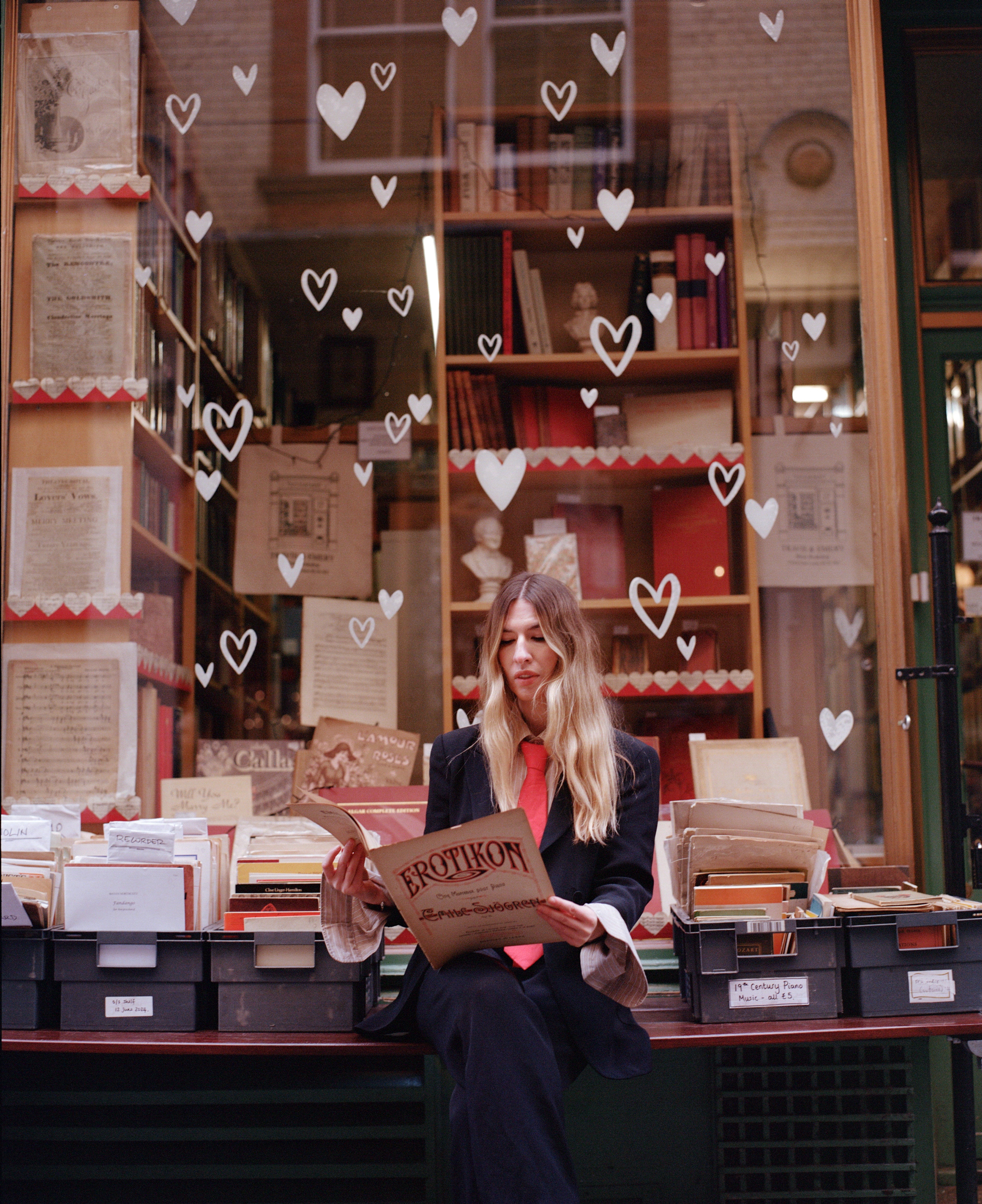
A Day Out
Some memories are multi-sensory. I can still smell the air perfumed with the scent of bacon sandwiches. Hear my mother ruthlessly haggling. See worn hands clutching flasks of tea. Feel chubby raindrops caressing my face (no matter what the season it was always cold, always moody). Such was life as a kid whose weekends were mostly spent mooching around car boot fairs, watching as my parents sifted through other people’s castoffs in the hope of finding some treasure. No doubt inspiring my now grown-up giddiness in the company of old things: dusty antique decorations, rails of shabby vintage coats, 50p books. Finding endless joy in re-homing the rejected.
Despite music being one of my first loves I’m not, however, what you’d call a ‘crate digger’ (a person who thrifts for rare or obscure records). I’ve sadly never owned a record player. I do however have a bookshelf — filled with prose collected from second-hand bookstore crawls in Paris, London, New York City, New Orleans, Savannah, and beyond. Browsing these darkened archives is always a hypnotic experience. Never quite sure what I’m searching for exactly, but searching, nonetheless. And so ‘erotica digging’ was born: the act of attempting to find rare or obscure erotica. Please, come join me while I stomp around some of London’s finest rare bookstores on the hunt for some niche, and wholly tantalizing, treasure…
February 2025, 12.15pm, London
London has been my home for 15 years. Bizarrely, this is my first-time paying a visit to Cecil Court – possibly the city’s most romantic street. Dubbed ‘booksellers row’, it is an antique dreamscape. First up is a tiny establishment which will remain nameless. Here, it is just me, and two men (one customer, one shopkeeper).
“Hello. I have a request. Do you have any…erotica?”
Suddenly I fear I’ve caused offence.
“No,” is his stern response. With no follow-up, which makes me feel like a teenager asking for a sex tape.
I swiftly exit.
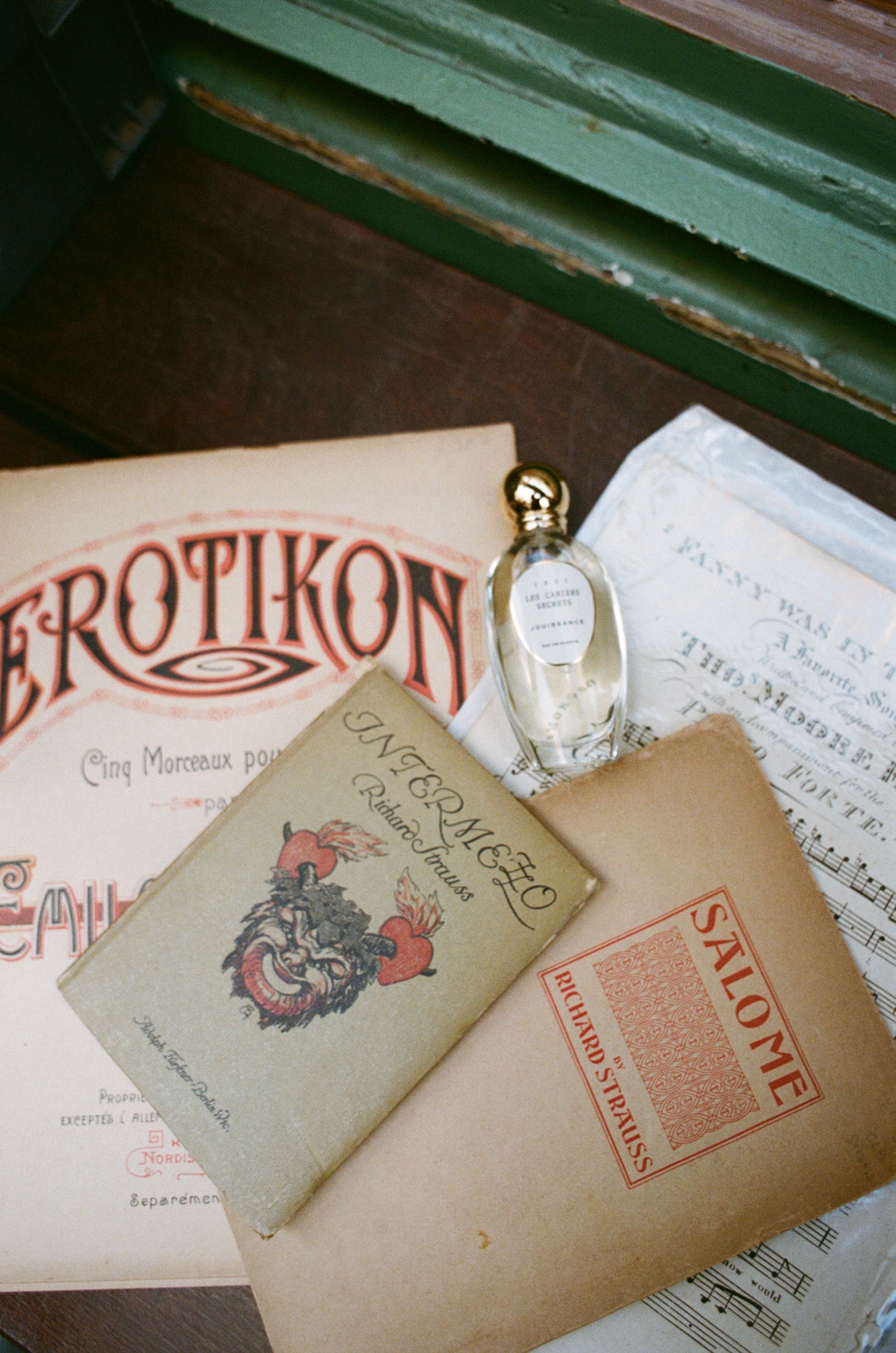
12.26pm
Nearby, I pop in briefly to Liberty Joy Archive, a far more joyful experience, featuring the most delightful curation of archival pieces (everything you see in the store is for sale, from a vintage cocktail bar to exquisitely tailored power suits).
At the back of the shop, I spot mid-1960s issues of cult French erotica magazine Lui, a sight I haven’t seen outside of Paris flea markets (“A Frenchman came in the other day and said he used to sneak them into school — they were pretty scandalous!” the impeccably dressed sales assistant tells me). For two years, their July 1973 cover, featuring a young woman on rollerblades with yellow tights pulled suggestively down her legs, was my phone screen saver.
12.50pm
A few doors down there’s Goldsboro Books. No erotica, sadly, a woman who works there tells me, it’s not really their thing, though they have noticed an increasing appetite for romantasy (which can feature a smattering of so-called ‘smut’). How come? “I think they want the escapism,” she says, before leaving me with a recommendation. Not a book, but a podcast — I Give You My Body — which is essentially a four-hour masterclass on writing sex scenes. Ah, I do love talking to strangers. You never quite know where a conversation will end up.
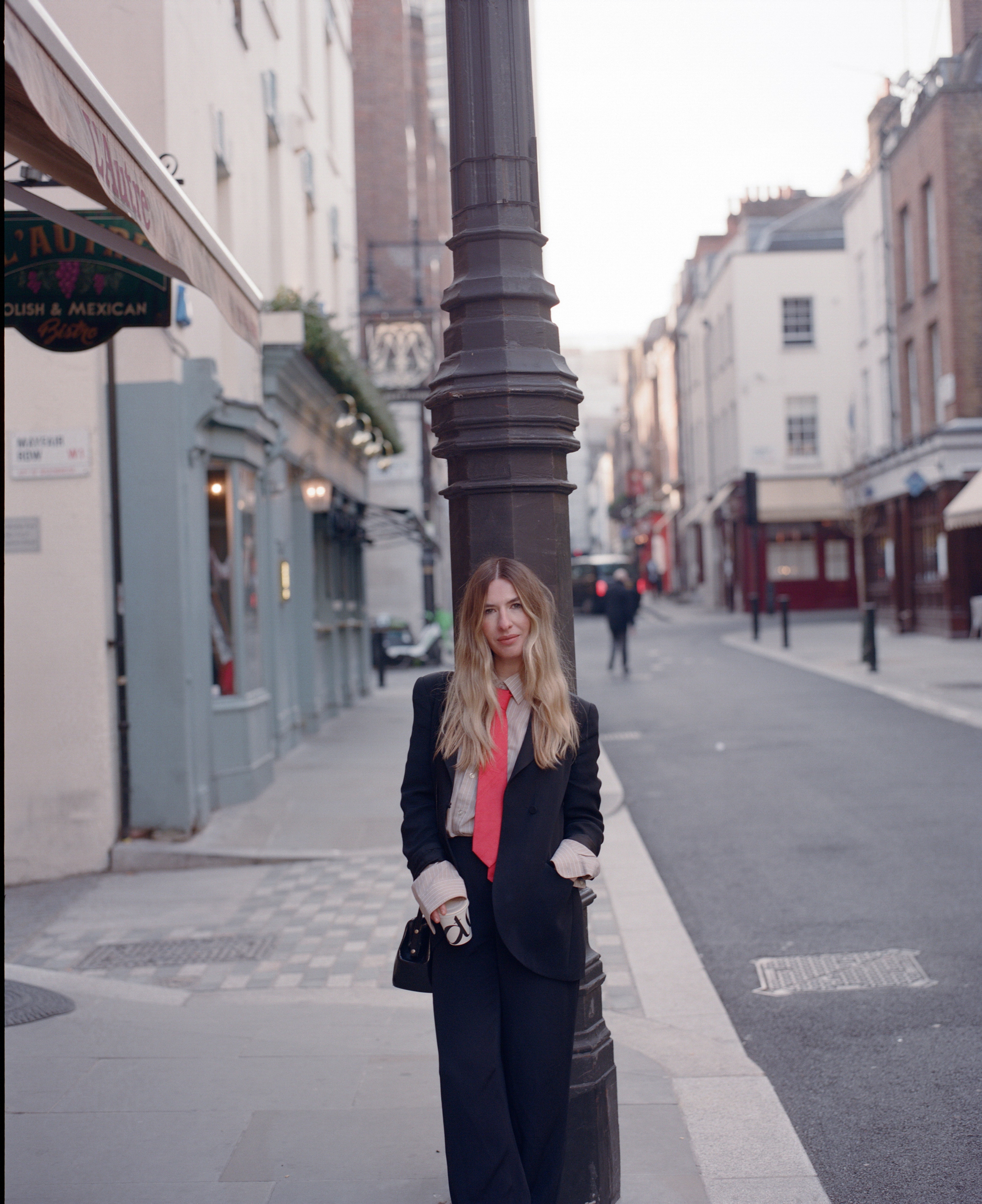
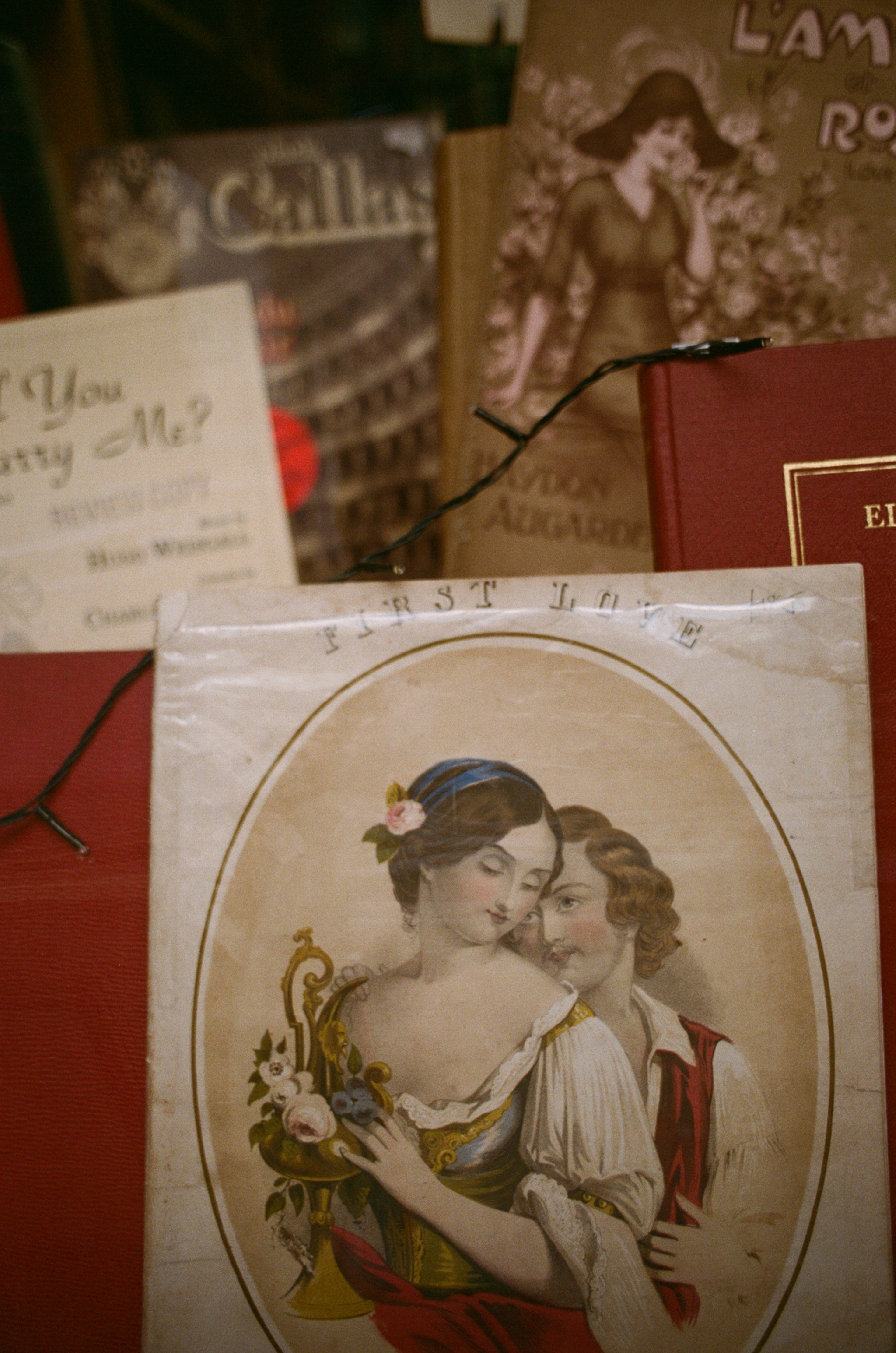
1.10pm
Last on the Cecil Court tour? Travis & Emery Music Bookshop. I fall in love with this place immediately, you can just tell it has been untouched since the 1960s. It’s how I imagine Fran Leibowitz’s expansive personal library: a time capsule, full of extraordinary delights, and beautifully disordered in a way that seduces one to rummage through its shelves. One bookseller tells me they had recently sold a copy of Wagner and the Erotic Impulse. “There’s a lot of sex in opera,” he adds, name checking Dimitri Shostakovich’s Lady Macbeth of Mtsensk, condemned as “pornography” by one critic and famously banned in Soviet Russia in 1936, due to its depiction of an adulteress and murderess. Wagner’s intensely passionate Tristan und Isolde in the late 19th century, featuring a love potion and the concept of la petite mort (a "little death", often used as a euphemism for orgasm). Richard Strauss’s Salome.
After I share the latter on my Instagram stories, a fan, poet Ellana Blacher, DMs me. “I’m OBSESSED with Salome,” she writes. “It has everything…drama, intrigue, prophecy, a sheltered princess rebelling against her parents. It also has the dance of the seven veils, which is by far the most iconic sexy opera scene, essentially [it’s] the original burlesque dance scene.”
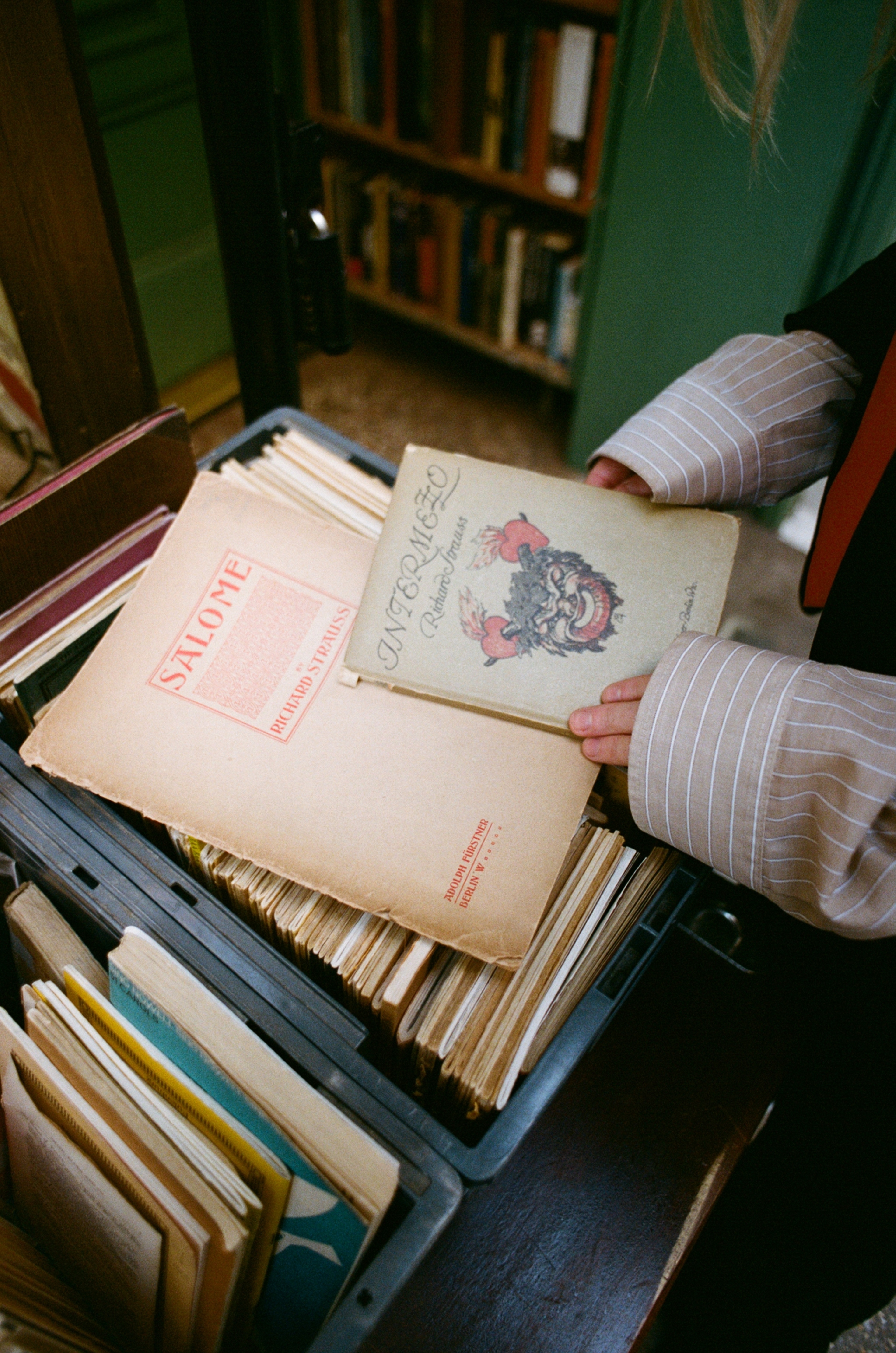
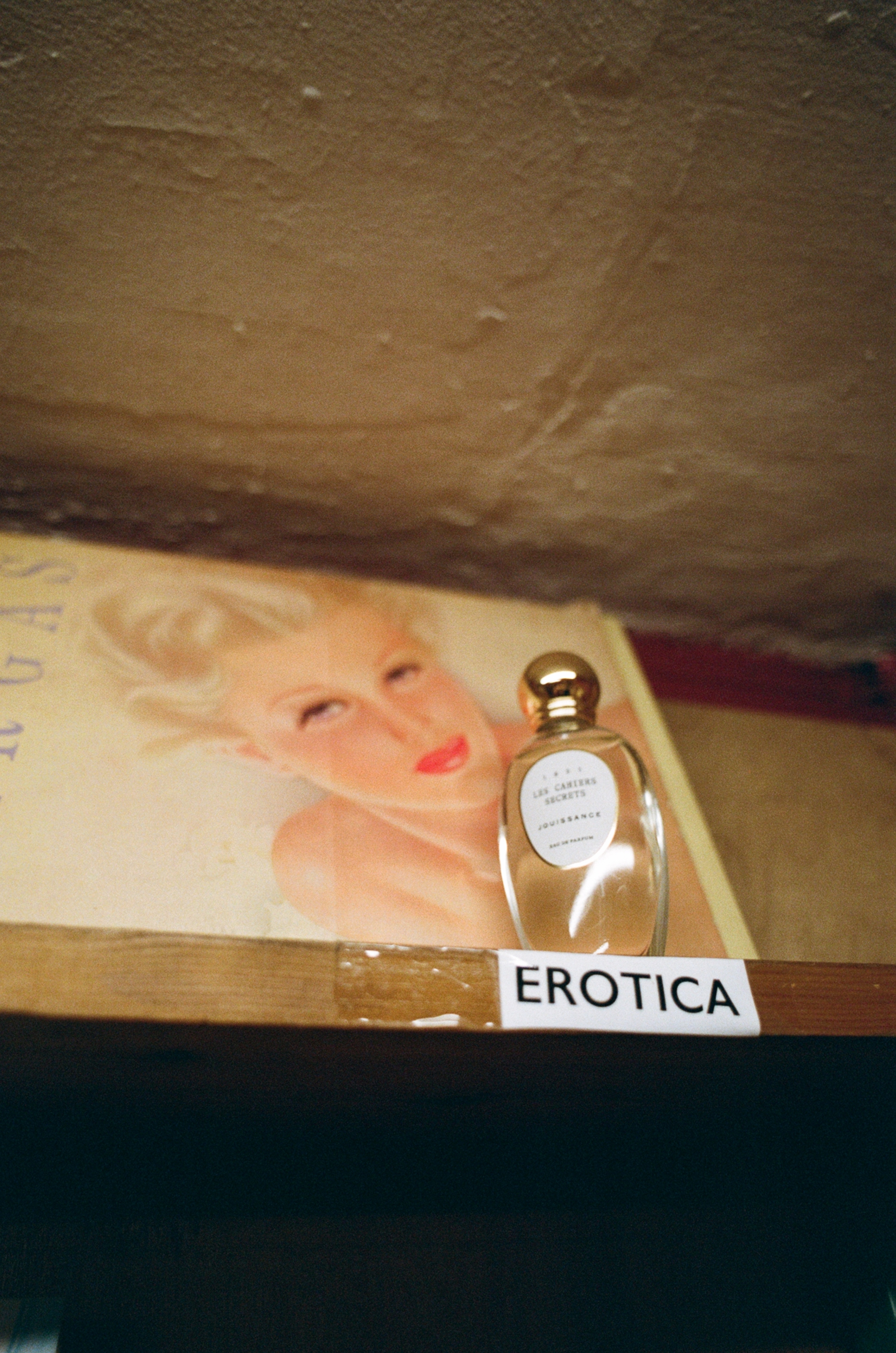
2pm
Just a three-minute walk away on Charing Cross Road, I find myself in Any Amount of Books, here £1 second-hand bargains are nestled with rare collectors’ items. Now, getting used to asking shopkeepers to show me their most erotic stock available, I am delighted to hear there is in fact a dedicated section on the genre. In the basement, on the top-shelf, in-between poetry and politics (an apt placement). I am greeted with just two books to thumb through: a French 1980s edition of Erotic art of India and a curation of Alberto Vargas’s work, known for his erotic watercolours of beautiful women. Beautiful, indeed, though I am longing to discover some literary erotica that celebrates the female gaze.
2.45pm
Onwards! On to my second-home, Hatchards, one of London’s oldest bookshops, which people often forget is home to an ever-expanding curation of rare books on the fourth floor. Will and Celine, arguably the sweetest and most well-read booksellers there, begin their search. “We did have a 1950s copy of A History of Orgies,” they say, piquing my interest, before alerting me to the fact it is “perhaps the dullest book ever written on the subject.” Damn. “I’m sure we have some Anaïs Nin somewhere…” Celine interjects hopefully. Ten minutes later she arrives armed with two glorious first editions of Nin’s Under a Glass Bell [£675], first published in the 1940s, it was one of the few pieces of fiction that received critical acclaim at the time. Alongside the first volume of her diaries from 1931-1934 (there are seven main volumes), published in the 1960s [£1200]. I take great pleasure in poking around a woman’s inner world, so the diary is particularly riveting: an impassioned detailing of Paris’s literary society, her marriage, her many lovers, and her shameless dances with desire. “I have natural flow in the diary,” she wrote, “what I produce outside is a distillation, myth, the poem.” The inside inscription from Nin is a gift in and of itself:
Eternal youth granted
George – the same exactly as I saw you in Paris long ago with friends
Anais
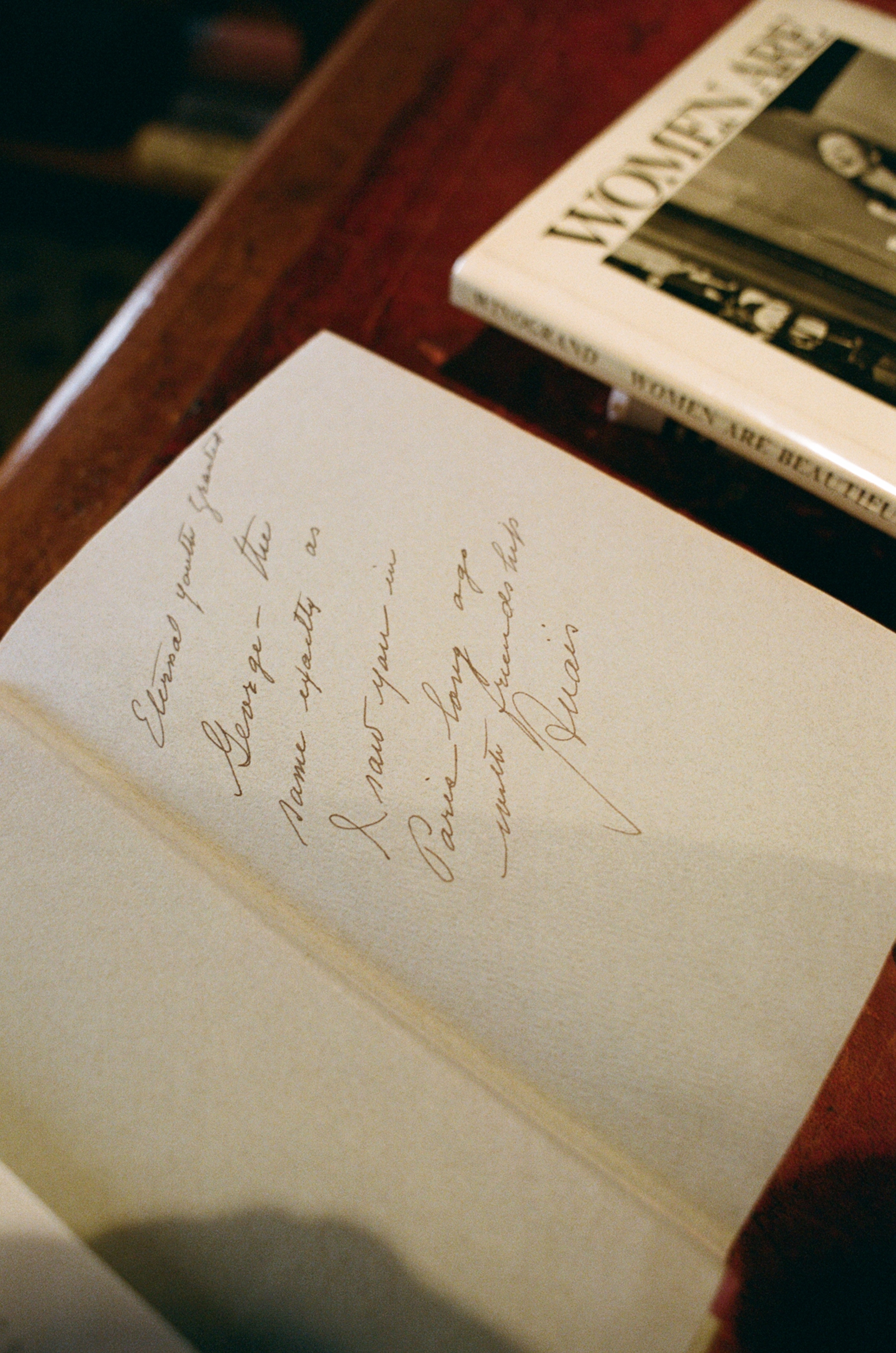
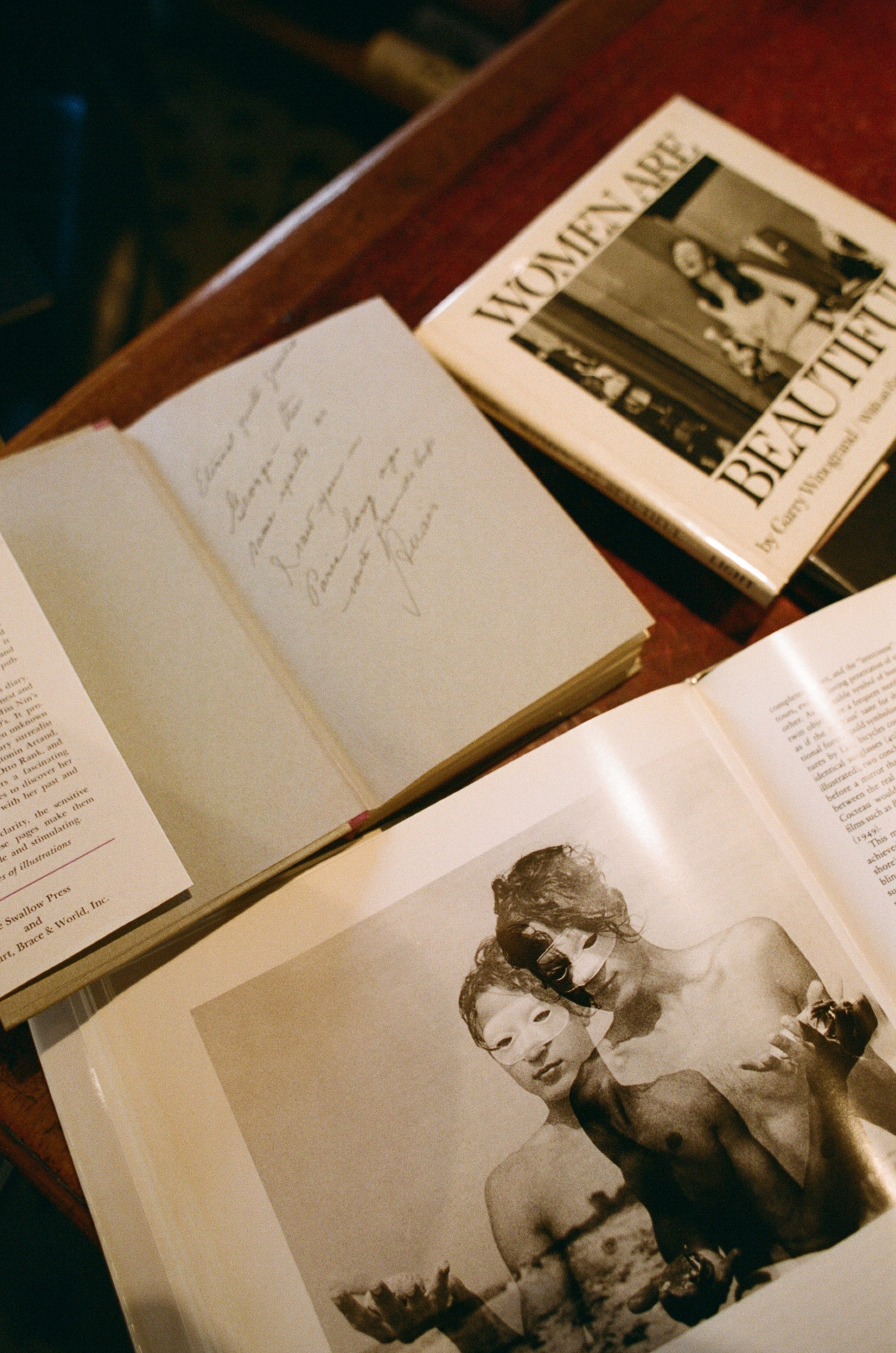
3.45pm
Late afternoon, I mosey on down to Magg Bros. Ltd., one of the world’s largest and oldest antiquarian booksellers. Their smaller shop on Curzon Street in Mayfair doesn’t exactly have what I’m looking for today, though one of their booksellers, Euphemia Franklin, tells me she’s deeply attached to the genre herself, “I write about Japanese erotica in my spare time.” Franklin studied the history of design at the Royal College of Art and the V&A, and recently revisited Toshio Saeki’s rarely published illustrative work, closely related to the Japanese cultural phenomenon ‘erotic, grotesque, nonsense’ (ero, guro, nansensu).
4.30pm
Last pitstop: Peter Harrington. Upon entering it is, to quote Björk, oh so quiet. Not a bad thing, mind you: rare book shops are silent retreats for artists who cannot afford them. Noise and all sense of time melts away. I flick through a couple of artful relics in the form of lothario Giacomo Casanova’s provocative memoirs, featuring stirring illustrations of his sexual adventures, and a limited-edition copy of French photographer Bettina Rheims’s evocative portraits of women across nearly four decades (capturing her subjects as not merely passive objects of desire, but as women who fully inhabit it). Asking for erotica, it turns out, has become my new favourite ice-breaker. “You can always tell when a customer asks for something interesting,” says one of the four booksellers, “the whole shop will start looking…”
A fitting end to today’s experiment, I think. Distilling what makes the genre so distinctly absorbing. Not so much the destination, but the pursuit of pleasure. The craving for connection, a reawakening, an encounter that has the power to illuminate one’s life, however fleetingly. Throughout her writing life, Nin wrote many promises to herself that can be recycled as advice. This one in particular is worth keeping. “Ordinary life does not interest me,” she wrote in her diary. “I seek only the high moments. I am in accord with the surrealists, searching for the marvellous.”
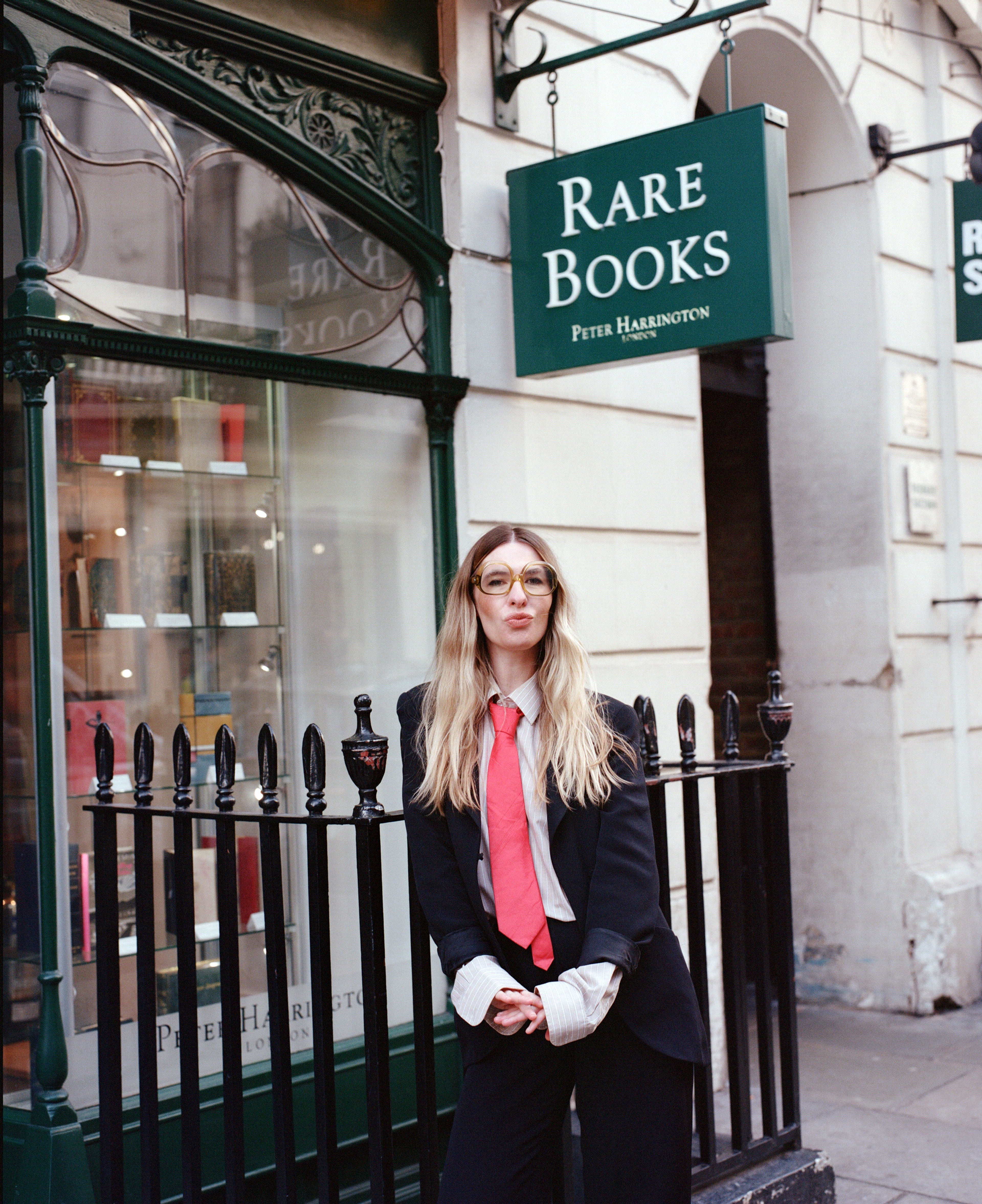
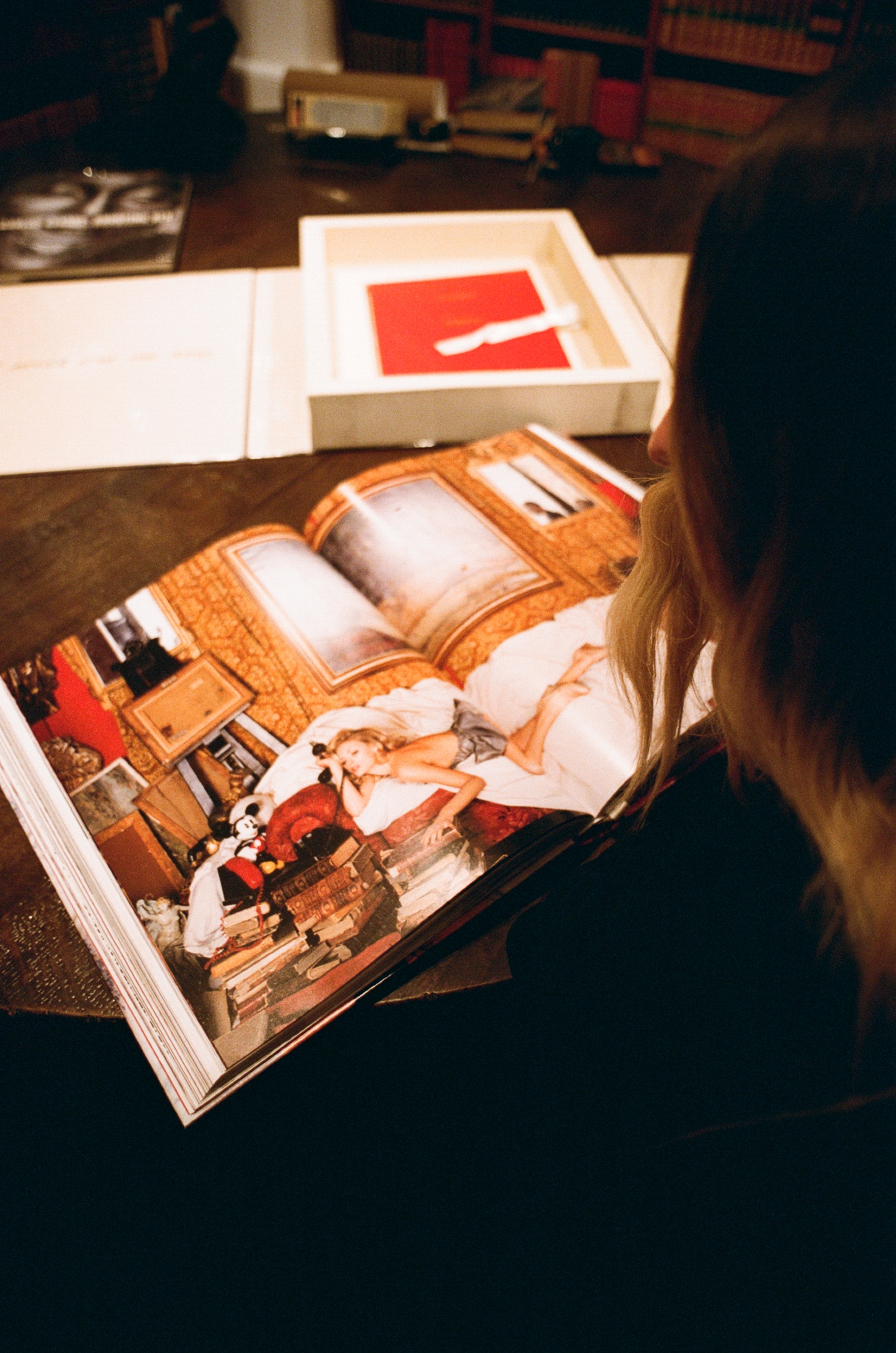

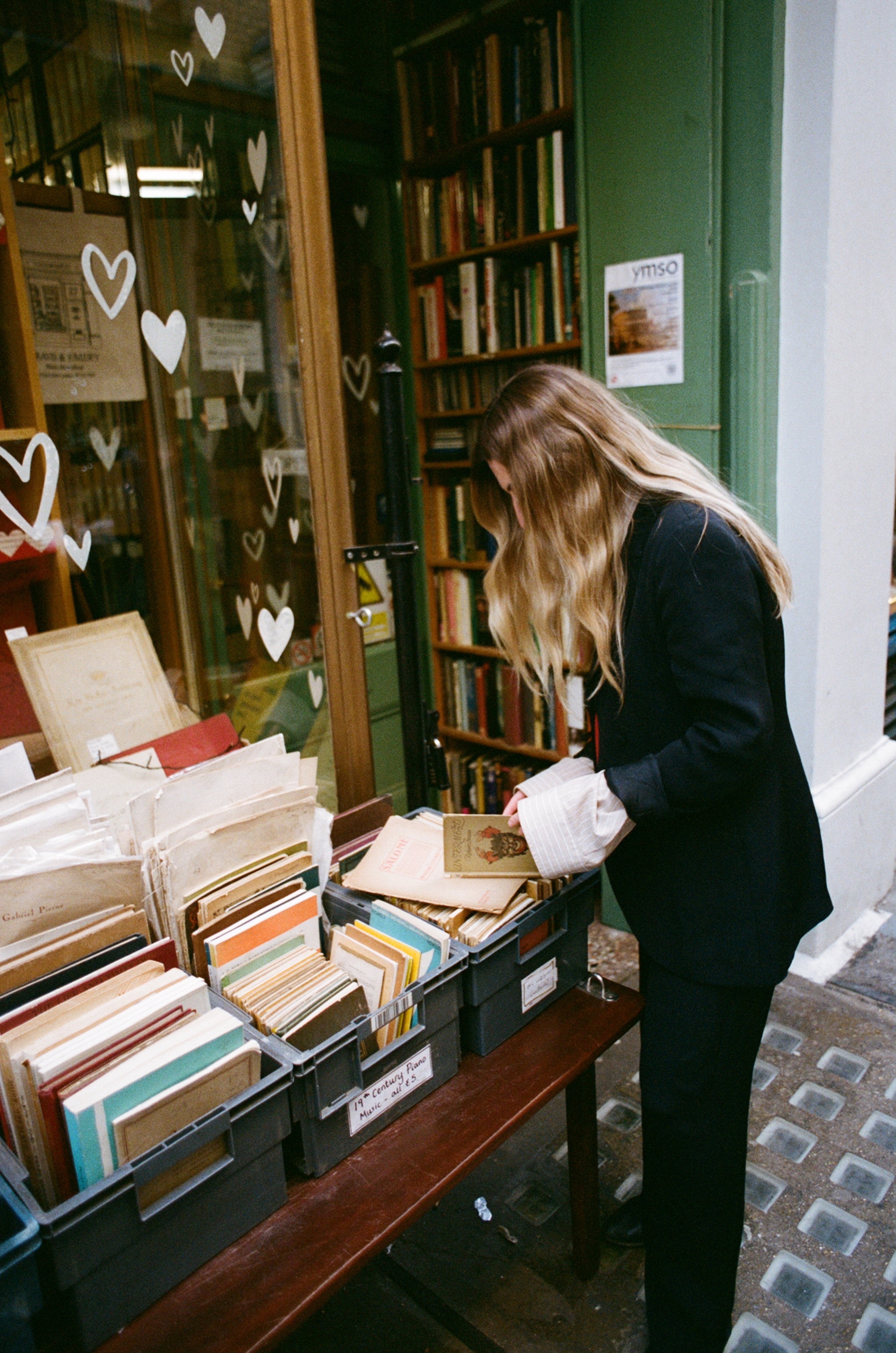
Featured Product
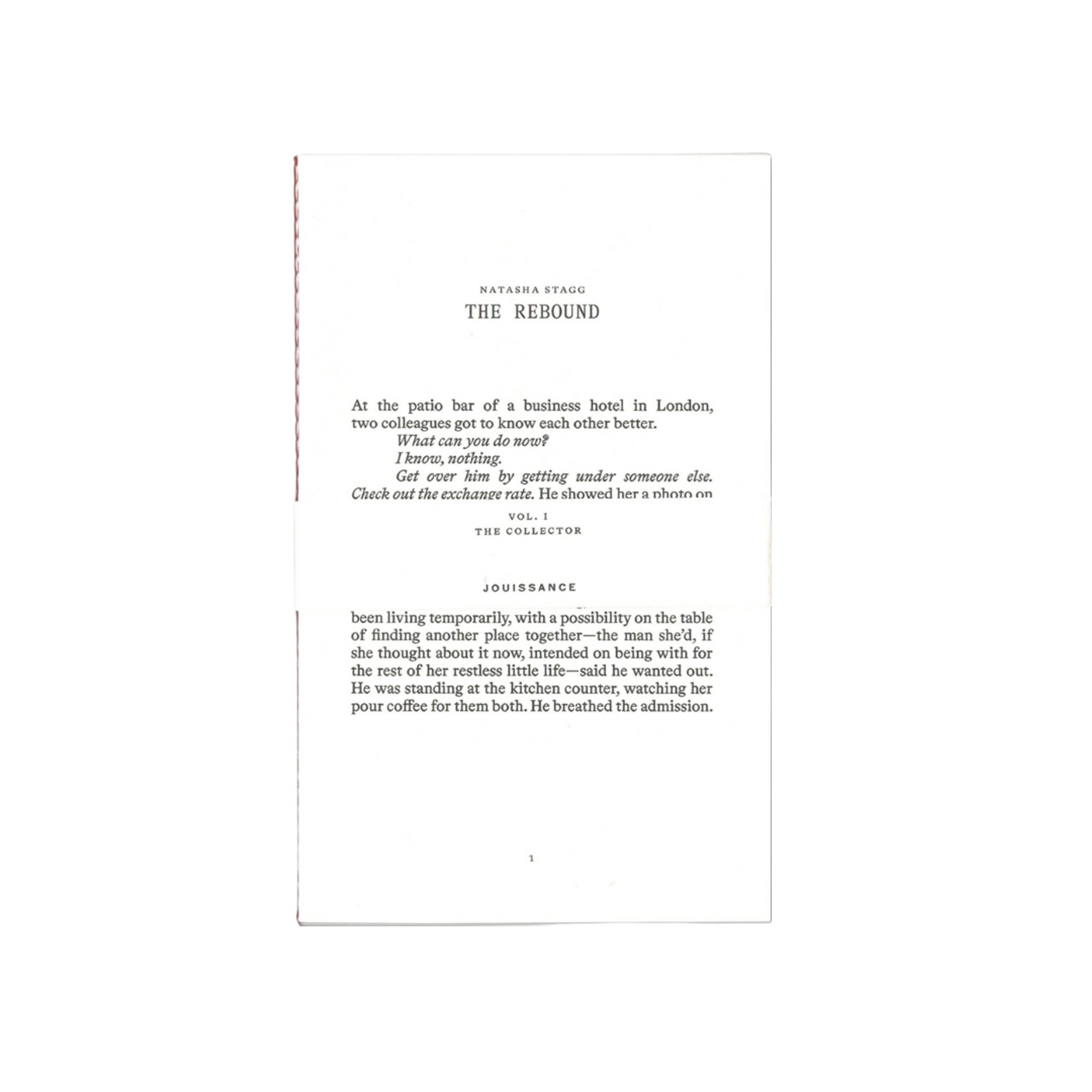
The Collector, Vol. I
Jouissance Diary
"It was while writing a Diary that I discovered how to capture living moments," Anaïs Nin wrote. "In the Diary I only wrote of what interested me genuinely, what I felt most strongly at the moment, and I found this fervour, this enthusiasm produced a vividness which often withered in the formal work. Improvisation, free association, obedience to mood, impulse, brought forth countless images, portraits, descriptions, impressionistic sketches, symphonic experiments, from which I could dip at any time for material."
In tribute to Anaïs Nin, one of our foremost inspirations for Jouissance, our DIARY captures our most treasured moments, our obsessions and preoccupations, our research and the lessons we learn, and the work of our cherished friends and collaborators.
Customer Care
Newsletter
We want to write you letters. Sign up to join our circle and receive 10% off a 50ml fragrance.
Jouissance London LTD Made in the UK
© 2024 Jouissance London Ltd. All rights reserved.